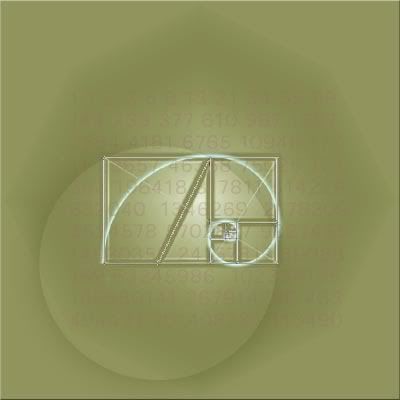
What I love about the golden spiral is the way it unifies the subjective and the objective:
On one level it is a phantom of the human mind, extracted from nature where it is presented to the intellect as a mere potential; not present, but an abstraction waiting to be realised. On the other, its beauty represents everything that is wonderful about the natural world, the organic perfection which can be represented numerically but only experienced through direct aesthetic means.
The root of the golden spiral is in number: the spiral itself was discovered by the manipulation of the Fibonacci Sequence. It demonstrates how the mechanical processes by which human intellect categorises form and seeks to limit objectivity, themselves contain the seed of beauty; for beauty itself is representative of subjectivity.
The debate rages on as to whether numbers are real, preexisting the human mind (preexisting matter itself?), or whether they are 'invented' by humans as a result of our experience of the world, but our knowledge of the golden spiral rests wholly on the articulation of number. Only later did we find nature also utilising the simple harmony of the patterns Fibonacci discovered.
Tne golden spiral represents the eternal relationship between abstract and effulgent. The fullness, the irreducible organic gestalt of objective reality generates in the human mind the need to abstract into universal forms and numbers; it is this mechanical numeric form which creates harmony and beauty as subjective experience. The tripartite, dialectical relationship between object, form and subject, or between matter, universal and mind. Discovered first within number and then within nature, prompting the question 'from whence does it originate?' The answer of course is that all exist within an eternal relationship. To place one aspect as temporally - materially - prior, and then claim the others as entirely generated, entirely caused by it, is to make an ontological/teleological prejudgment which assumes the importance of material temporality over, for example, logic.




